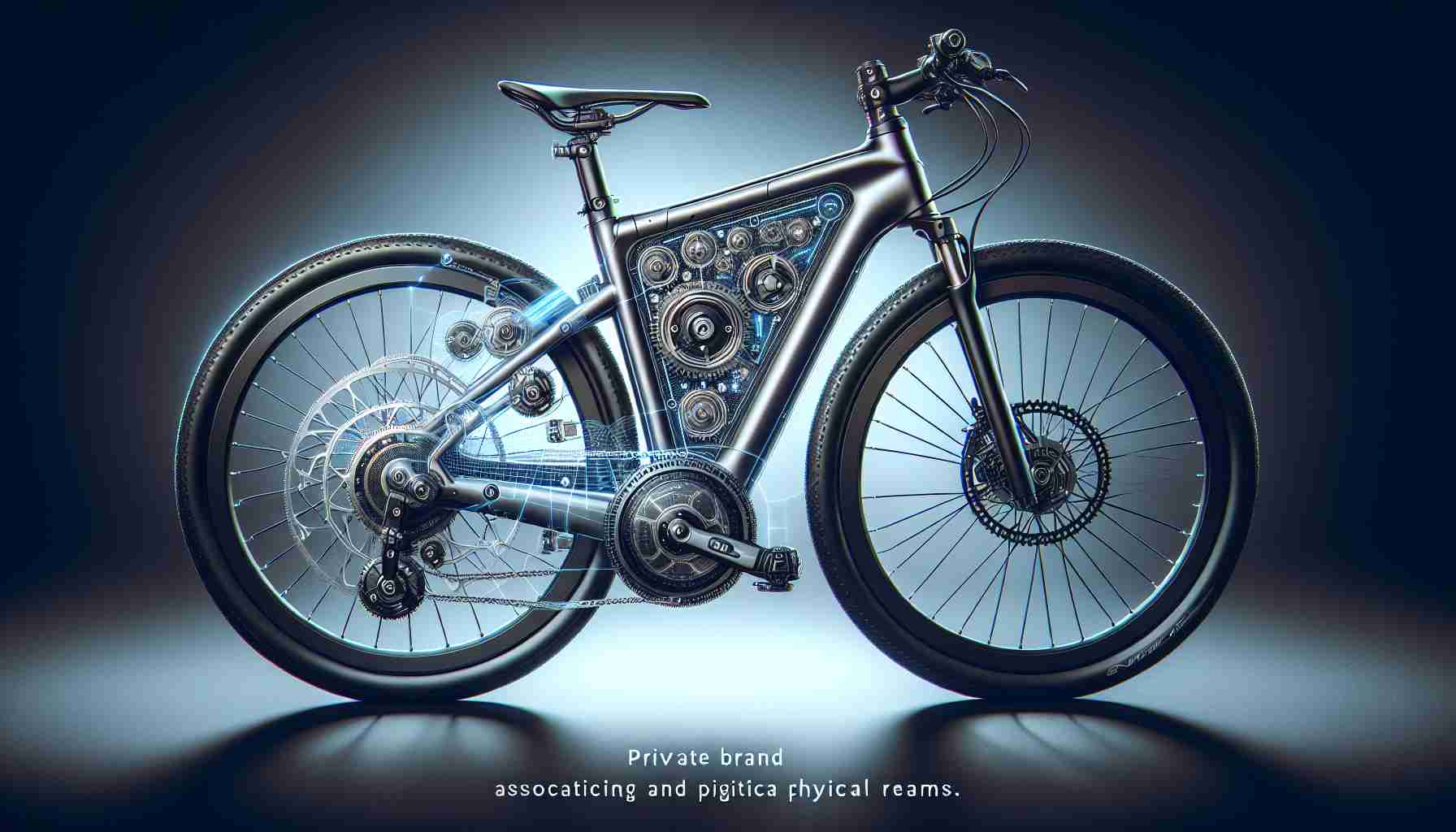Bosch eBike Systems, a German business specializing in connected biking, is celebrating a decade of innovation in 2024. To mark this milestone, the company has unveiled a range of exciting new features for its e-bikes, including AI integration, advanced gear-shifting capabilities, and expanded B2B digital services.
One of the key highlights of the Model Year 2025 (MY25) portfolio is the incorporation of artificial intelligence for enhanced route planning and navigation. Bosch eBike Systems’ smart system now offers personalized routes that adapt to user behavior, making every ride a unique and seamless experience. The introduction of Range Control features allows riders to reach their destination with a specific battery level, while the Eco+ mode promotes energy efficiency for extended riding ranges.
Further improving the riding experience, Bosch has partnered with TRP and Shimano to introduce a revolutionary gear-shifting system. This new technology enhances comfort while reducing material wear, ensuring a smooth and efficient ride. The eShift portfolio has been expanded through these partnerships and is now compatible with e-bikes using derailleur systems. Customization is made easy through the eBike Flow app, which allows riders to fully personalize the auto downshift function.
In addition to these advancements, Bosch continues to prioritize practical upgrades for everyday riders. The company has improved theft protection, navigation, and regular updates, providing more customization options and a convenient e-biking experience.
Furthermore, Bosch is expanding its digital offerings for e-bike manufacturers, providing various app interfaces and services to enhance the future of e-biking. The eBike Flow app can now be tailored to match manufacturers’ branding, and Bosch is offering eBike SDK and Cloud APIs for developing own-brand solutions. Third-party integrations broaden the scope of potential innovations and functionalities.
Emphasizing its commitment to sustainability, Bosch has conducted a CO2 analysis with TÜV Rheinland. This initiative aims to enhance e-bike sustainability by expanding the company’s remanufacturing portfolio and global battery recycling efforts, prioritizing emissions reduction.
With its decade-long dedication to connected biking, Bosch eBike Systems continues to spearhead technological advancements, revolutionizing the e-biking industry.
The e-bike industry has been experiencing significant growth in recent years, and Bosch eBike Systems has played a crucial role in driving this advancement. As e-bikes become increasingly popular as a means of transportation and recreation, Bosch has continuously innovated to provide riders with cutting-edge features and technologies.
Market forecasts indicate a promising future for the e-bike industry. According to a report by Allied Market Research, the global e-bike market is projected to reach $46.04 billion by 2026, with a compound annual growth rate of 9.7% from 2019 to 2026. This growth can be attributed to various factors, including increasing awareness about environmental sustainability, rising fuel prices, and the growing desire for healthier lifestyle choices.
One of the key challenges faced by the e-bike industry is the need for efficient route planning and navigation. With the incorporation of artificial intelligence in its systems, Bosch eBike Systems addresses this issue by providing personalized routes that adapt to user behavior. This feature not only enhances the riding experience but also ensures seamless navigation for riders.
Another significant issue faced by e-bike riders is the limited range offered by batteries. Bosch eBike Systems tackles this problem with its Range Control features. Riders can now specify their desired battery level and be guided to their destination accordingly. Furthermore, the introduction of the Eco+ mode promotes energy efficiency, enabling riders to enjoy extended riding ranges.
Gear-shifting capabilities are also an important aspect of e-bike performance. By partnering with TRP and Shimano, Bosch has revolutionized gear shifting, enhancing comfort and minimizing material wear. This advancement not only provides riders with a smoother and more efficient ride but also offers compatibility with e-bikes using derailleur systems.
Bosch’s commitment to practical upgrades for everyday riders is reflected in its focus on theft protection, navigation, and regular updates. These improvements ensure that riders have a personalized and convenient e-biking experience, further contributing to the industry’s growth and customer satisfaction.
Bosch eBike Systems doesn’t limit its innovations to the riders alone. The company also offers various digital services and interfaces for e-bike manufacturers. By providing app interfaces and services, Bosch enables manufacturers to enhance the user experience and develop their own-brand solutions. This opens up new avenues for innovation and customization in the e-bike industry.
Sustainability is a key concern in the e-bike industry, and Bosch eBike Systems recognizes the importance of addressing this issue. Through its CO2 analysis with TÜV Rheinland, Bosch aims to reduce emissions and enhance e-bike sustainability. The company focuses on expanding its remanufacturing portfolio and global battery recycling efforts, ensuring that e-bikes have a minimal impact on the environment.
As Bosch eBike Systems celebrates a decade of innovation, it continues to lead the e-biking industry with technological advancements. The company’s dedication to providing riders with an unparalleled riding experience, coupled with its commitment to sustainability, solidifies its position as a frontrunner in the industry.
Further Reading:
– Bosch eBike Systems
– Global E-Bike Market Forecast
– TÜV Rheinland







